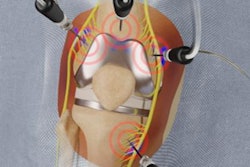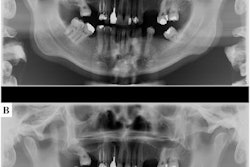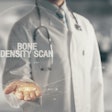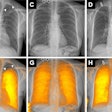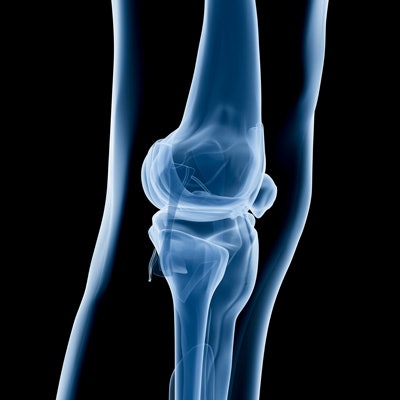
Routine x-rays after total knee arthroplasty (TKA) surgery offer very little clinical benefit, and limiting the exams can reduce radiation exposure in patients and save millions of dollars, according to a study published online August 26 in the Knee.
"Postoperative radiography obtained after primary TKA were of low clinical utility yet resulted in considerable healthcare costs and unnecessary radiation burden," wrote first author Dr. Aseal Birir and orthopedic surgery colleagues at Harvard Medical School in Boston, MA.
Total knee arthroplasty is the most commonly performed joint replacement procedure in the U.S. By 2030, the demand for primary total knee arthroplasties is projected to grow by 673% to 3.48 million procedures.
Currently, there are no evidence-based guidelines describing when to order postoperative radiography after knee replacements, so orthopedic surgeons have historically relied on institutional norms to dictate when to order an x-ray, the authors wrote.
In this retrospective study, the researchers looked at the outcomes and costs of 3,831 postoperative x-rays from 1,258 adults who had knee replacements at Brigham and Women's Hospital and another center in Boston between January 1, 2014, and December 31, 2014. Overall, 493 (39.2%) patients were male and 765 (60.8%) were female, with an average patient age of 72 years. Postoperative reports were included until April 2020, which provided a five-year follow-up period for each patient.
Radiation exposure was calculated based on 0.002 mSV of radiation exposure per three-view knee radiograph series based on previously reported estimates. The average cost for each series was estimated at $282 per radiograph.
The team found just 44 (1.1%) out of 3,831 x-rays contained positive findings, defined as anything in the radiology report related to the initial surgery that didn't demonstrate normal healing or alignment. Out of those 44, only 13 (0.3%) were positive orthopedic findings, 11 of which led to changes in management of the patients.
In addition, the researchers estimated that routine postoperative radiographs that did not change management cost $1,008,480 and administered a total of 22.92 mSV of radiation to all of the patients included in the study.
"In our study alone, millions of dollars could have been saved in healthcare spending if postoperative radiographs were limited to nonroutine visits," the researchers wrote.
The study is one of the first to present data on whether postoperative radiographs change clinical management after total knee arthroplasty in a large sample size over a five-year follow-up period, the authors wrote.
The findings support evidence that noncritical use of medical imaging is driving up healthcare costs and that more thoughtful use of imaging is needed to control these costs, the authors stated.
"This data is critical because it suggests that in the majority of patients undergoing [total knee arthroplasty], postoperative radiographs during routine visits are unlikely to change clinical management," the team concluded.






